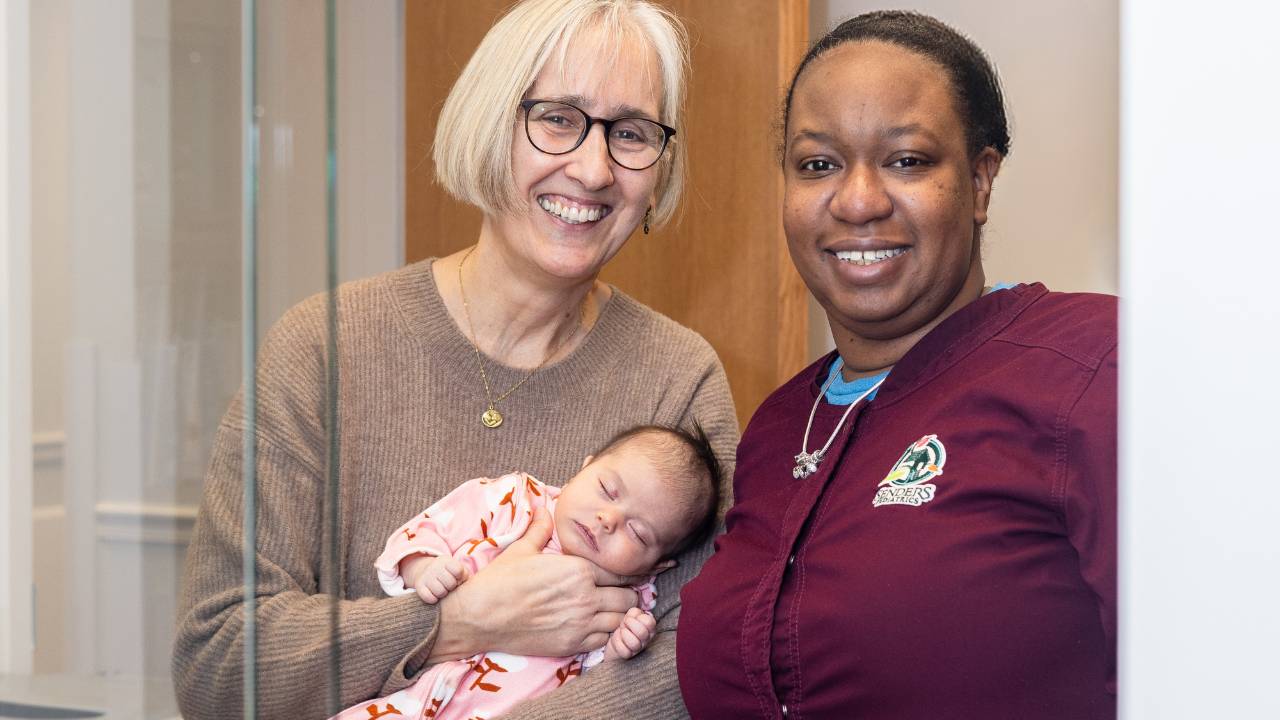Medical Trainee Breastfeeding Education: Innovative Collaboration
Jan 09, 2025
When I meet residents fitting in a breastfeeding elective at the end of their residency, wanting to learn as much as they can about breastfeeding because they feel ill-prepared to support breastfeeding families, I feel a mixture of excitement at their interest, frustration that the system does not provide more consistent education, and acceptance that I have only so much time to teach. This is why I created the course Primary Care Breastfeeding Support: The First Weeks. I saw a need and wanted to provide medical trainees with more detailed information than time allowed in my routine encounters.
A need for breastfeeding education
Beyond breastfeeding electives, I have been fortunate to work with a variety of trainees over the years. I have spoken at Grand Rounds, lactation conferences, small group discussions, and medical education interest groups, as well as worked with medical students and residents in our clinics, either as required parts of their rotations, during electives, or for research projects. In all of these instances, I continue to hear a common theme: there is more interest and need for breastfeeding education than is possible in the time available.
Quantifying barriers, interest, and gaps in education
Since launching The First Weeks, over 100 medical trainees have completed a pre-course survey. Our results are consistent with other reports in the literature; physicians in training believe a medical provider can influence an individual’s decision to breastfeed (95%) and yet only 13% identify as being very confident, or confident, in managing common breastfeeding challenges. Not surprisingly, the 2 main barriers to discussing breastfeeding with patients are not enough time (69%) and not feeling competent (69%). Specifically, respondents were not comfortable managing (see chart image) the many topics that are encountered by families in the first weeks postpartum like latching difficulties, delayed lactogenesis/low milk supply and concerns for milk transfer.

These results help quantify the need for expanded training. Yet, just like there is a challenge to providing breastfeeding support because of lack of time in individual patient visits, trainee programs have competing priorities. They struggle with limited time available for creating and holding lectures, and limited access to clinical lactation experience. Furthermore, not all residency programs and medical schools have breastfeeding medicine faculty, and not all trainees will be available for the limited number of in-person lectures.
Creative solutions
In order to expand the network of lactation support providers, we need creative solutions to the barriers of medical trainee education. To address the barriers of limited time and need for education focused on managing breastfeeding difficulties in the first weeks postpartum, we have paired asynchronous online learning of our course Primary Care Breastfeeding Support: The First Weeks with clinical time in our clinic. This allows for more detailed discussions on management of difficulties. The feedback we have received has been overwhelmingly positive. Our survey responses and course feedback show that > 90% of those who have taken the course find it helpful, with residents significantly more likely to report being very confident or confident managing common breastfeeding challenges (increased from 13% to 66%).
Other residency programs have integrated the course into clinical rotations such as a newborn/postpartum rotation, outpatient ambulatory time, and lactation clinics. In general, medical trainees report valuing clinical evaluation and management of breastfeeding challenges such as engorgement, delayed lactogenesis, and cracked nipples. When asked, they consistently report latch and hand expression as the clinical skills they most value learning.
Building a Foundation
The current system of healthcare provider education lacks standardization, often is dependent on a faculty breastfeeding advocate to prioritize the training, and results in variable support for families. While there is increasing effort to establish a core curriculum and establish competency for clinical skills, this will take time. But it doesn’t mean we have to leave patients to suffer.
As we collectively work to build a more standardized foundation of breastfeeding-supportive healthcare practices, there are steps that we can take today to improve the ways we care for families. Expanding educational opportunities in collaboration with Dr. Ann Witt and Breastfeeding Medicine Primary Care is one option, with clearly positive results. We are setting up the next generation of healthcare providers to meet families where they are, to identify and treat breastfeeding problems sooner, and to offer advice and hands-on tools that will substantially improve their quality of life and support breastfeeding goals.
We hope you’ll join us!




